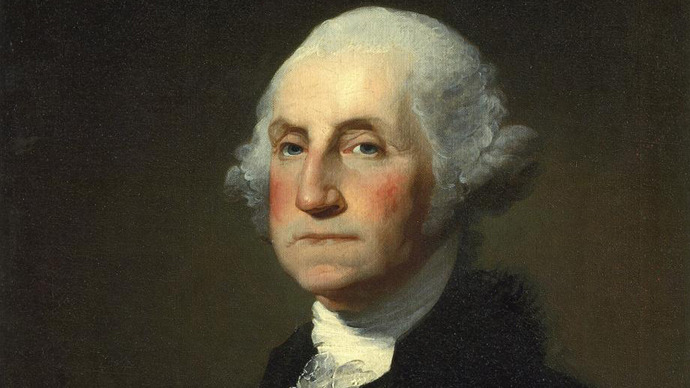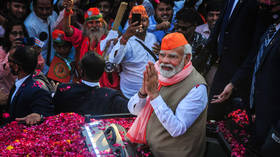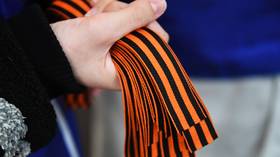The Founding Fathers Deconstructed

Sadly, after touring George Washington's Mount Vernon Estate, James Madison's woefully neglected Montpelier, and Thomas Jefferson's home, Monticello — my husband and I turned into betting men.
The wager? In which stately room would our guide commence the deconstruction of the American founding for the sin of slavery?
Visitors had all been schooled well. Many of the questions fielded touched on slavery; most of those present were eager to display their exquisite sensitivity. As evinced by the furious nodding and sighing, almost all tourists "got" how irreparably blemished these brilliant and brave individuals were because of that peculiar institution. Although the slave quarters at Mount Vernon were closed for renovations, at the time, one young man draped himself decoratively over a narrow windowsill. There he stood motionless, deep in thought, his hunched frame racked by (very showy) pain.
An African-American family sauntered toward the Mount Vernon estate plan where I lingered. The father pointed toward one landmark only: "Here, son, were the slave quarters. Here is their unmarked tomb." Not a word did dad disgorge about George Washington the farmer and freedom fighter. Thus was a young black American directed to nurse those unappeasable grievances.
At Monticello we were joined by our good friend the economist and historian Thomas J. DiLorenzo. What a shame that the entire party could not have benefited from his countervailing commentary. "It didn't take long before the school-marmish tour guide announced that 'historians tell us' that Jefferson fathered six children with slave Sally Hemmings," Professor DiLorenzo later blogged at Lewrockwell.com:
"She didn't say which historians say this, nor did she indicate why anyone would expect historians to have knowledge of DNA science, which would be necessary in order to come to such a conclusion. Nor did she mention that there are many prominent scholars who have objected to (and ridiculed) this assumption,’ concluding ‘that it is in all likelihood a hoax.’"
By the time you arrive at the second room in any given estate, you will be required to expiate over slavery. The framers of the Constitution, it will be suggested, are beyond historical redemption given the contradictions they embodied. Wearing trendy shades and a short skirt, a slutty-looking gatekeeper stood sentinel at Washington's tomb. The woman galvanized the contemporary vernacular of pop-psychology to explain to a tortured middle-aged (white) man that, "Washington freed his slaves toward the end, but kept some on because he was addicted to the life-style."
This was History From Below — the history of the US is what the Legislative Black Caucus, the NAACP, and so-called civil-rights activists say it is; a litany of complaints and contrivances launched by self-styled victim groups on behalf of minor historical figures.
The idea that the Founders were flawed, sinful men like you and me is current among a hefty majority of Americans, conservative too. It is wrong. Quite the reverse. The Founders were nothing like us. Not even close. I say this not as an idealist but as a realist. Judging from their works and their written words, the American Founding Fathers were immeasurably better than just about anyone on earth today. That goes for that gnarled sadist Mother Teresa, whom the late Christopher Hitchens nailed in "The Missionary Position: Mother Teresa in Theory and Practice." And it applies to the moral role-models selected for us annually, courtesy of CNN's Anderson Cooper.
The Founders are matchless today both morally and intellectually — their actions bespoke a willingness to forsake fortunes and risk lives for liberty, a concept and cause alien to contemporary Americans, who are, largely, without the mental and moral gravitas necessary to grasp it.
As for the writings of the likes of Thomas Jefferson, James Madison, Benjamin Franklin and others: Today's muddled and malign pseudo-intellectuals cannot hope to approximate works such as the "The Federalist Papers" and "Anti-Federalist Papers." In fact, Charles Murray's monumental work, "Human Accomplishment," in which he comes up with subjects who "dragged their fellow men out of wattle-and-daub hovels and pushed them into space rockets," tends to support my harking to the past, not the present, for intellectual inspiration.
George Washington was a brilliantly inventive farmer, who used state-of-the-art technologies and thinking to cultivate and conserve. Yet the impression you get from the Mount Vernon guide is that he was nothing without his slaves. Indeed, as you traipse around the homes of these men you're wont to hear about this or the other wonderful cabinet maker or marvelously gifted horseman, or farmhand. Who do you imagine taught the slaves these skills and trades? The monarchs of Buganda?
A member of our group at Montpelier sidled up to my spouse, and snapped, "I wish they'd quit banging on about slavery untethered from its historical context. This was the thinking back in those days."
Granted, the American Founders didn't share in the Rousseauist reverence for the Noble Savage. That was a French thing. The Founders acted as paternalistic, benevolent patriarchs. The European missionaries in my homeland of South Africa were similarly disposed toward the thousands of African refugees who fled to their mission stations to escape tribal depredations. The missionaries regarded these tribesmen as children, to be de-tribalized, missionized, taught skills, a trade and literacy in preparation for life in a westernized society.
Slavery was debated vigorously and finally abolished by the English speaking people—not the African slave traders (who persisted in the practice).
Should you insist on retaining a clunky cliché, then fine: "The American Founders were not perfect." They were, nevertheless, a great deal more perfect than you, me, our mindless twittering offspring, and the errant adults and intelligentsia that have egged the "Idiocracy" on.
The statements, views and opinions expressed in this column are solely those of the author and do not necessarily represent those of RT.
The statements, views and opinions expressed in this column are solely those of the author and do not necessarily represent those of RT.












